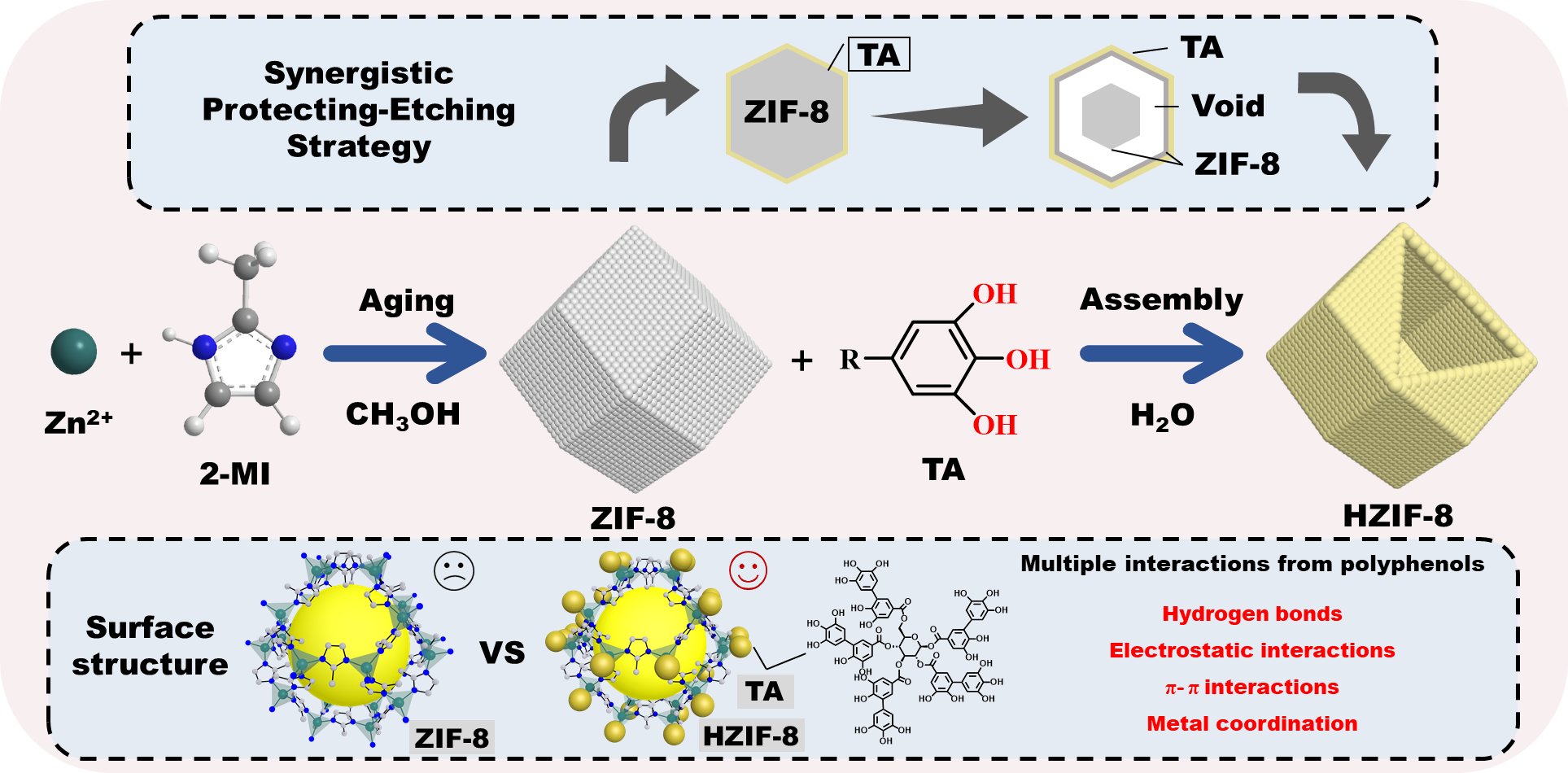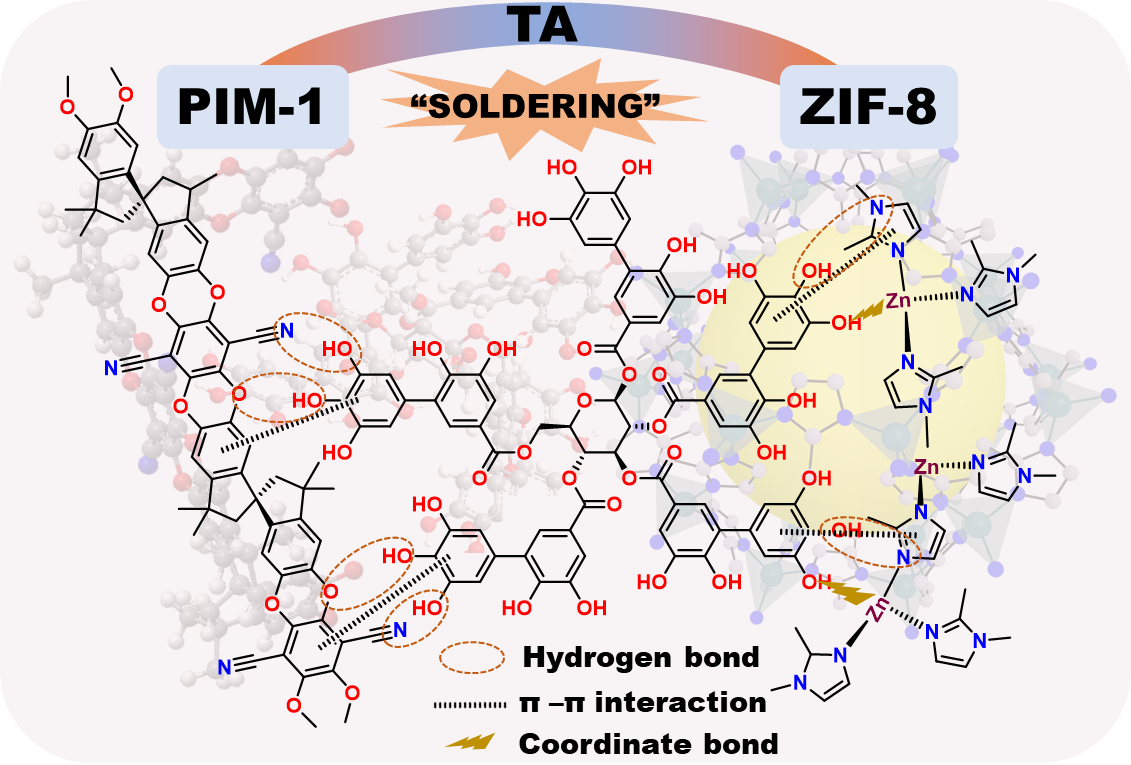Breakthrough in Membrane Technologies: Polyphenol Molecular Soldering Strategy for Advanced Mixed-Matrix Membranes
Published in Electrical & Electronic Engineering

The importance of CCS lies in mitigating global warming and climate change. CO2 is one of the major greenhouse gases that cause climate change, and its concentration in the atmosphere continues to rise, leading to an increase in the average temperature of the Earth. Global warming can cause a range of problems, including rising sea levels, extreme weather events, and reduced biodiversity, which can have a huge impact on human and Earth's ecological systems.
Advances in membrane technologies, specifically mixed-matrix membranes (MMMs) obtained via the combination of metal-organic frameworks (MOFs) and a polymer matrix, hold significant promise for energy-efficient gas separation. However, achieving a desirable match between polymers and MOFs for advanced MMMs is challenging, especially when using highly permeable materials such as polymers of intrinsic microporosity (PIMs).
In a groundbreaking new study, researchers have developed a molecular soldering strategy using multifunctional polyphenols to tailor polymer chains and hollow MOF structures to create defect-free interfaces. This innovative approach results in dense packing and visible stiffness of PIM-1 chains, which are strengthened by the exceptional adhesion nature of polyphenols, leading to improved selectivity. The architecture of the hollow MOFs allows for free mass transfer and substantially improves permeability. These structural advantages act synergistically to break the permeability-selectivity trade-off limit in MMMs, surpassing the conventional upper bound.

Figure 1. Schematic of the preparation of polyphenol tailored MOFs
Figure 2. Potential adhesions among PIM-1 chains, TA molecules, and ZIF-8.
This polyphenol molecular soldering method has been validated for various polymers, providing a universal pathway to prepare advanced MMMs with desirable performance for diverse applications beyond carbon capture. This breakthrough has significant implications for mitigating global climate change due to the low cost and ease of operation of MMMs. With this new technology, researchers can create advanced MMMs with superior performance, contributing to a cleaner, more sustainable future.
Follow the Topic
-
Nature Communications

An open access, multidisciplinary journal dedicated to publishing high-quality research in all areas of the biological, health, physical, chemical and Earth sciences.
Related Collections
With Collections, you can get published faster and increase your visibility.
Women's Health
Publishing Model: Hybrid
Deadline: Ongoing
Advances in neurodegenerative diseases
Publishing Model: Hybrid
Deadline: Mar 24, 2026




Please sign in or register for FREE
If you are a registered user on Research Communities by Springer Nature, please sign in